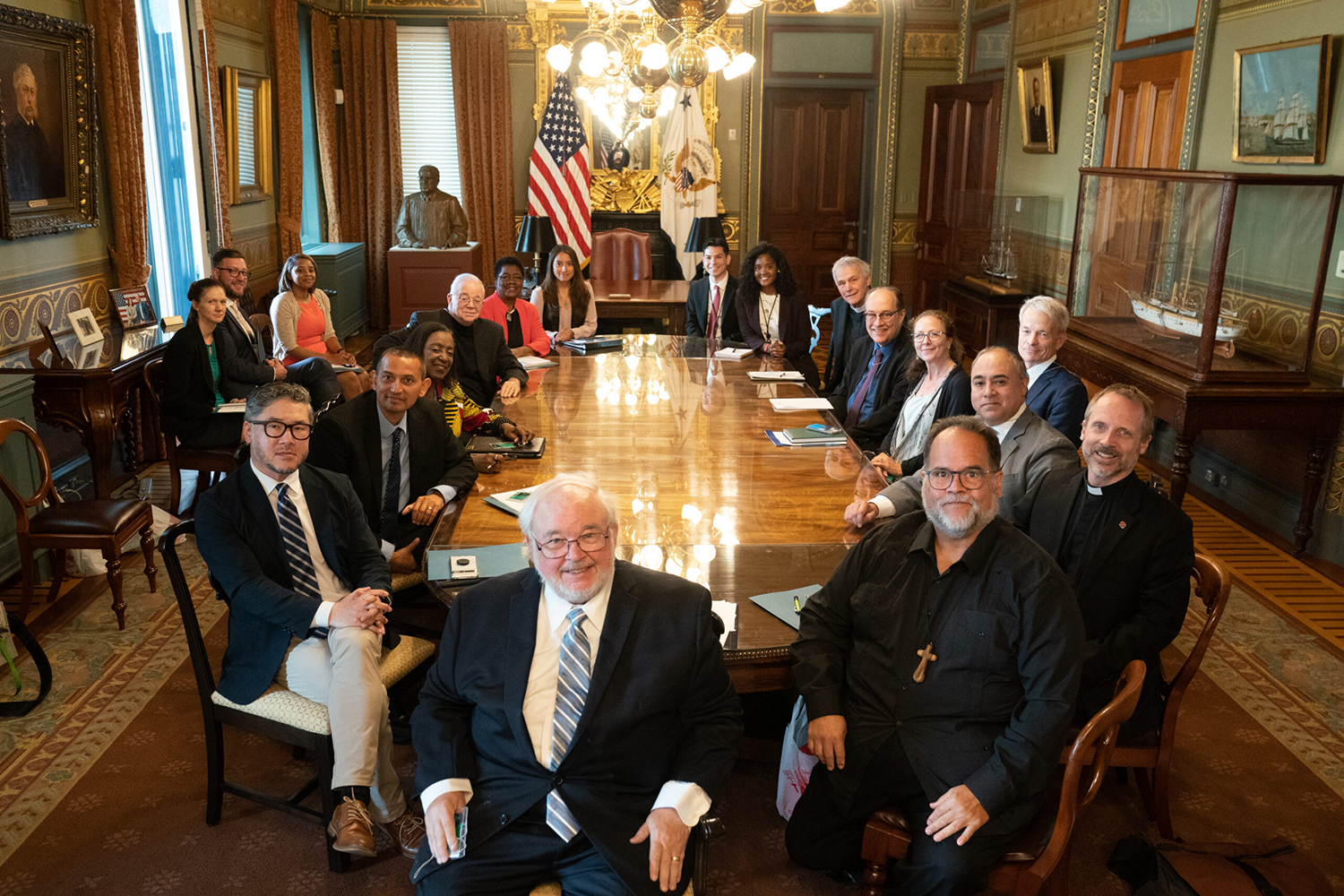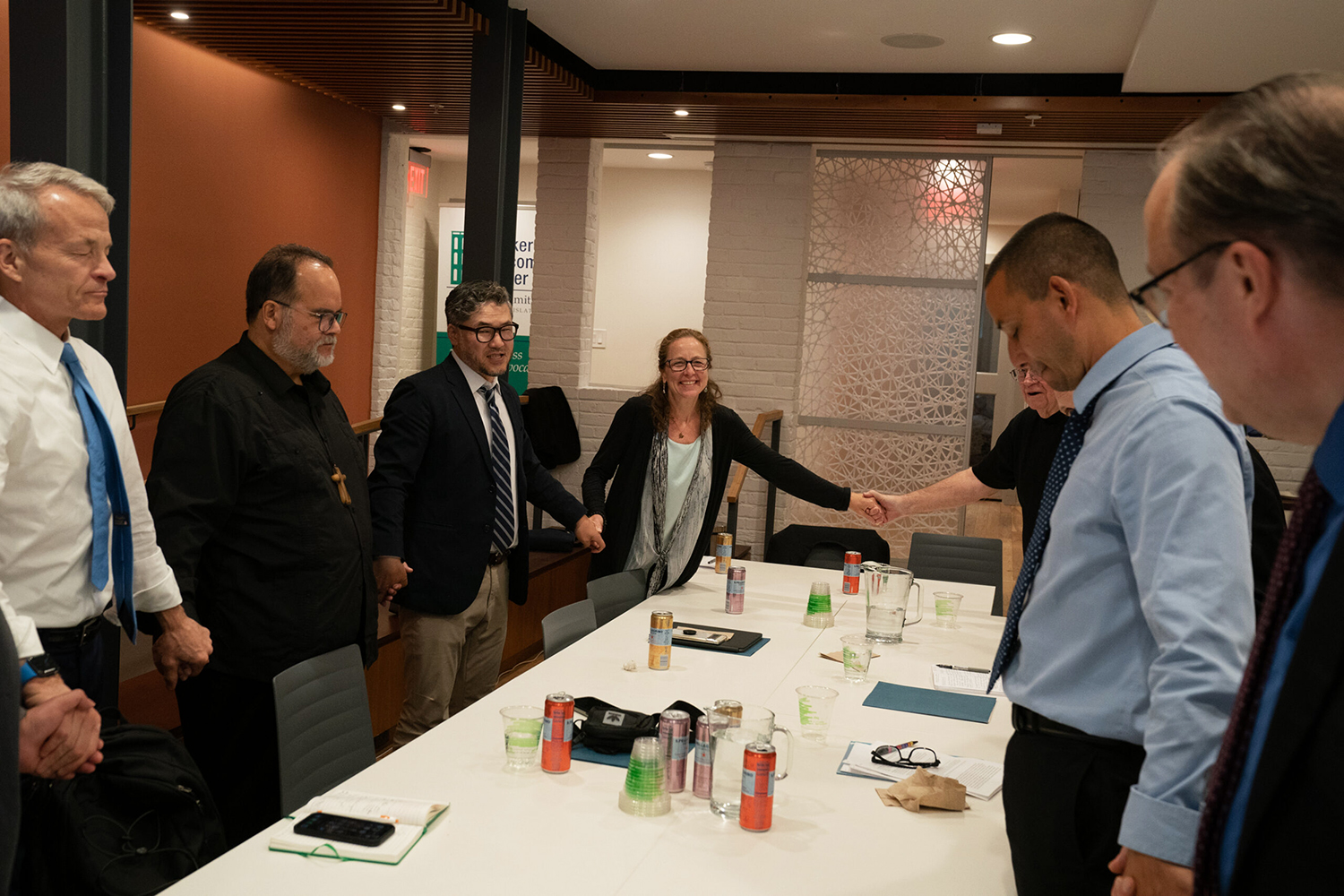
[ad_1]
(RNS) — Seventy-five leaders of national Christian organizations and prominent churches have sent a statement to the White House, Congress and congregational leaders calling for greater action to address racism and poverty.
“People of color continue to suffer problems related to race — high rates of death during childbirth, for example, and fear of gun violence and hate crimes as they go about their daily lives,” reads the statement titled “God’s Call to Action Against Racism and Poverty in 2024.” “Issues related to racism are now being fiercely debated across the country, and many people
of color are fearful that racism is getting worse.”
The statement, created by the ecumenical and predominantly white coalition called the Circle of Protection, is to be released Wednesday (May 1).
The initial signatories on the two-page statement included the presidents of the National Association of Evangelicals and the National Council of Churches, leaders of African American and Latino networks, and officials of the Jesuit Catholic order and the Quakers, a peace church tradition.
One of the key steps related to poverty in the statement, whose overall signatories include leaders of Asian American and Indigenous groups, is a call for congressional passage of an expanded child tax credit, which offers financial assistance to parents.
RELATED: Faith leaders urge lawmakers to pass expanded child tax credit
“It just is a miracle that the House has passed this thing, and it’s very close to
passing the Senate,” said the Rev. David Beckmann, coordinator of Circle of Protection. “It would reach 16 million low-income kids.”
Beckmann said his group was encouraged by the Rev. Barbara Williams-Skinner, co-convener of the National African American Clergy Network, and Bishop Vashti McKenzie, NCC president, to make the declaration, which is an update to one issued in 2018.
“During the Trump administration, there was a sense that racism was resurging and that poverty was declining,” Beckmann said. “Now, this is years later, and racism, by various indicators, is getting worse. And poverty is up from 2021.”

A photo of the Circle delegation outside the U.S. Capitol after a day of advocacy on June 6, 2023. Photo courtesy of Circle of Protection
The statement cites concerns about the Supreme Court’s decision to ban affirmative action in college admissions and reductions in workplace initiatives that sought to advance racial equity.
“There’s a time, between a problem and total chaos, that people have to act,” said Williams-Skinner. “We believe that silence is consent. And that it is important for white Americans — and the circle is made largely of white American churches of different backgrounds, from right to left leaning — to speak out.”
The new statement is accompanied by “Anti-Racism Educational Resources for Local Churches,” a seven-page list of study guides, activities, videos and reading lists that the leaders say could “help individuals and groups deepen their understanding of racial injustice and engage in practices of healing and wholeness.”

A small group of Circle of Protection leaders stands together for a time of prayer and reflection at the end of the day of advocacy on June 6, 2023, at the White House, Senate and House of Representatives. Photo courtesy of Circle of Protection
Although the list includes some more well-known resources — such as the Episcopal Church’s “Sacred Ground” film and reading series or the U.S. Conference of Catholic Bishops’ “Intercultural Competencies” pastoral guide — they may be new to other organizations and congregations, Williams-Skinner said.
She hopes the statement signatories will go beyond affirming the statement to determine what steps they can take with their organizations and staffs to move closer to the goals of their declaration.
“Are we meeting at least a minimum level of reflecting the core values of our faith of caring for our neighbor, of building bridges across every divide, of looking out for the vulnerable?” she asked. “If we’re not doing that, then we should stop calling ourselves Christians.”
RELATED: We need to hear from the presidential candidates about poverty
[ad_2]